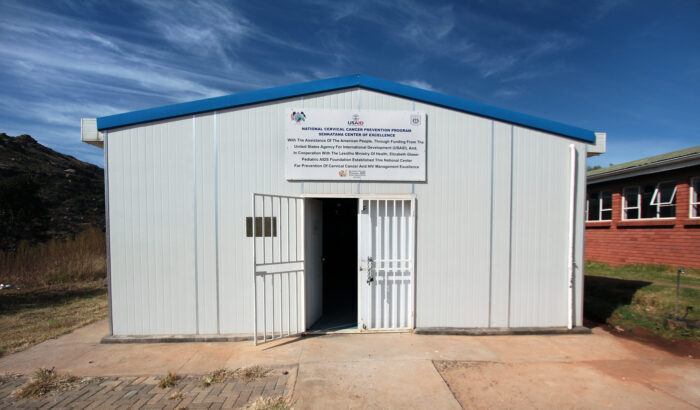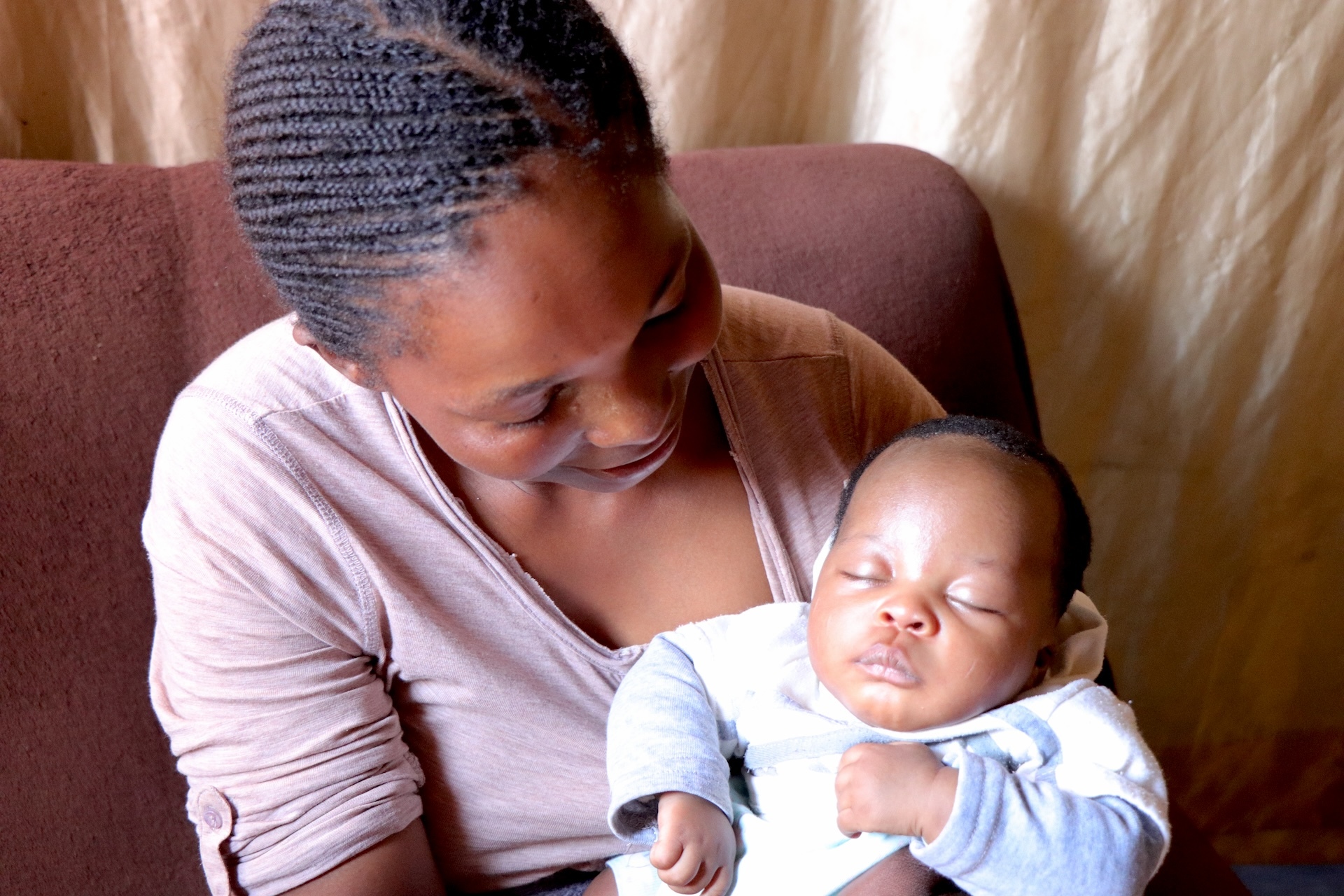Pelaelo* is a 39–year-old woman living with HIV in Maseru, Lesotho. Five years ago, she went for cervical cancer screening services after experiencing bleeding after sex. A biopsy was taken, and she was diagnosed with cancer.

Pelaelo was referred to Queen Mamohato Memorial Hospital in Lesotho for cancer treatment, but she had heard of how painful and damaging radiation and chemotherapy treatments are—and that some patients still do not survive. Afraid, Pelaelo tried various traditional herbal and alternative remedies instead of the recommended medical treatments. But Pelaelo’s symptoms only worsened. She started losing weight, and her skin became pale.
By January 2019, Pelaelo resolved to go to hospital. This time she was ready to face whatever came, life or death. She called the doctor requesting an antibiotic for her sexual and reproductive health condition, but she was advised that she needed surgery. After her laboratory samples were analyzed, she was booked for an operation the following week due to the urgency of her condition.
Pelaelo was referred to Queen Mamohato Memorial Hospital in Lesotho for cancer treatment, but she had heard of how painful and damaging radiation and chemotherapy treatments are—and that some patients still do not survive. Afraid, Pelaelo tried various traditional herbal and alternative remedies instead of the recommended medical treatments. But Pelaelo’s symptoms only worsened. She started losing weight, and her skin became pale.
By January 2019, Pelaelo resolved to go to hospital. This time she was ready to face whatever came, life or death. She called the doctor requesting an antibiotic for her sexual and reproductive health condition, but she was advised that she needed surgery. After her laboratory samples were analyzed, she was booked for an operation the following week due to the urgency of her condition.

Because cervical cancer surgery is not offered in Lesotho, Pelaelo was referred to an oncology hospital in Bloemfontein, South Africa—but she was scheduled for surgery in April. Pelaelo was so unwell that she doubted that she could make it to her surgery date.
Fortunately, the Ministry of Health announced that a group of visiting doctors from India would be at the district hospital in Maseru to see cancer patients. Pelaelo went to see them and was told that she could travel to India for treatment in two-week’s time.
The doctors in India confirmed her cancer diagnosis which was then at stage III and no longer suitable for surgery and, subsequently, offered chemotherapy and radiation. She began treatment immediately. The treatment was not easy; she experienced dizziness and nausea. But Pelaelo says that it was worth it. She continued treatment in India until June 2019 and then returned to Lesotho.
Finally Cancer-free

In September 2019, Pelaelo went in for check-up at the district hospital in Maseru Lesotho and the health workers were elated that they could not detect cancer.
However, she experienced vaginal stenosis—the vagina becoming narrower and shorter—one of the side effects of radiation treatment for advanced cervical cancer. She reported to the doctor and got help to prevent closure of the vagina. She feels healthy now and is back at work.
After all that she has been through, Pelaelo is eager to help ensure that other women screen for cervical cancer. When one of her fellow patients passed away from cancer, she spoke at a funeral. Many women came to consult her afterwards, most just needing some encouragement that there is a light at the end of treatment.
“I encourage other women to avoid fears and myths associated with cancer treatment and accept early treatment to save their lives,” says Pelaelo. She thanks the government for paying her cancer treatment costs, and she thanks all other partners who work together to fight cervical cancer in Lesotho. As of today, she continues to do well and is living her life in fullness.
“I encourage other women to avoid fears and myths associated with cancer treatment and accept early treatment to save their lives.”
*Pseudonyms are used throughout
EGPAF-Lesotho has integrated cervical cancer screening, diagnosis, and management into HIV services as part of routine HIV care since 2018. The program is supported by the U.S. President’s Emergency Fund for AIDS Relief (PEPFAR) through USAID and CDC.




